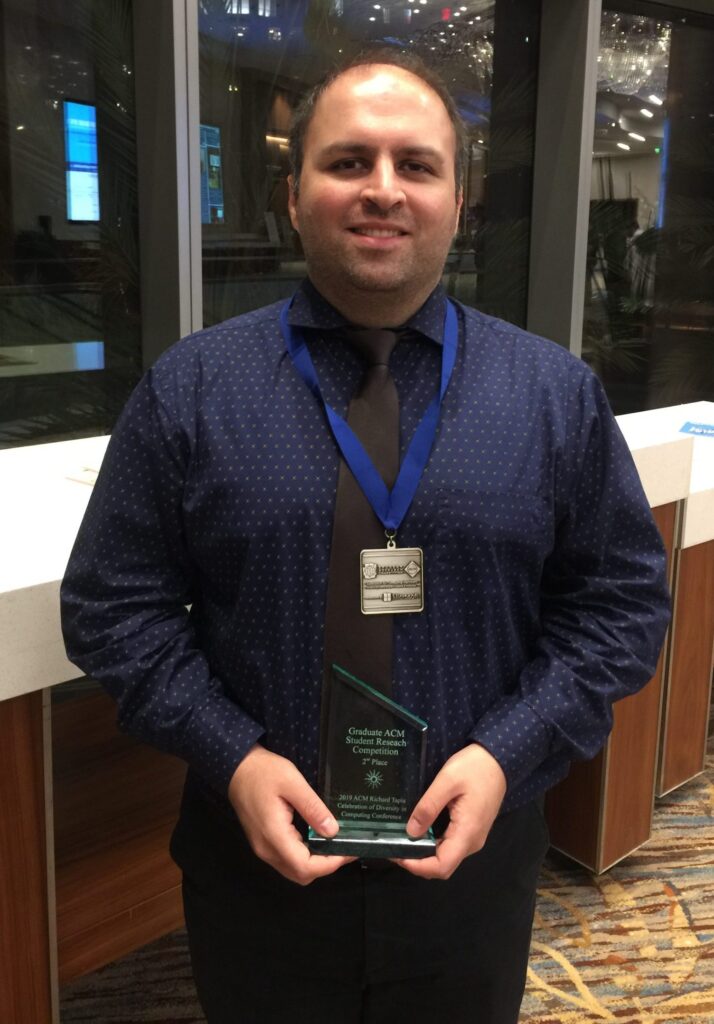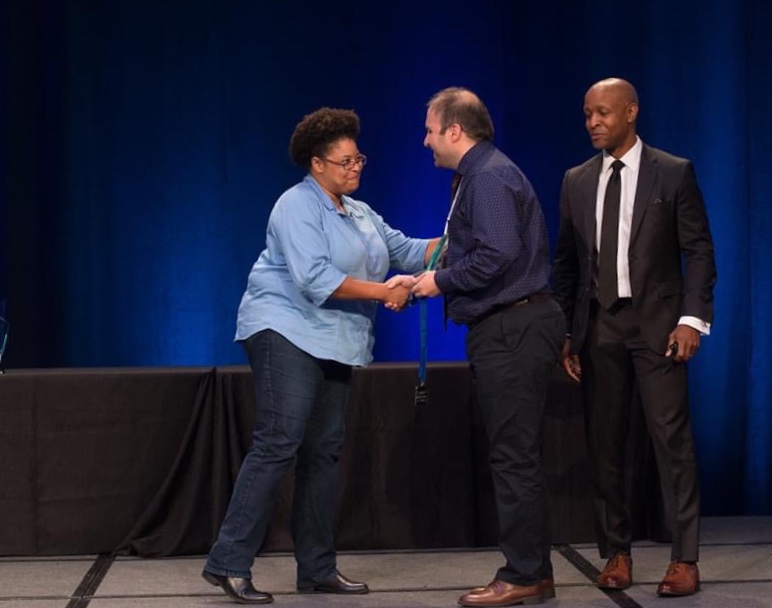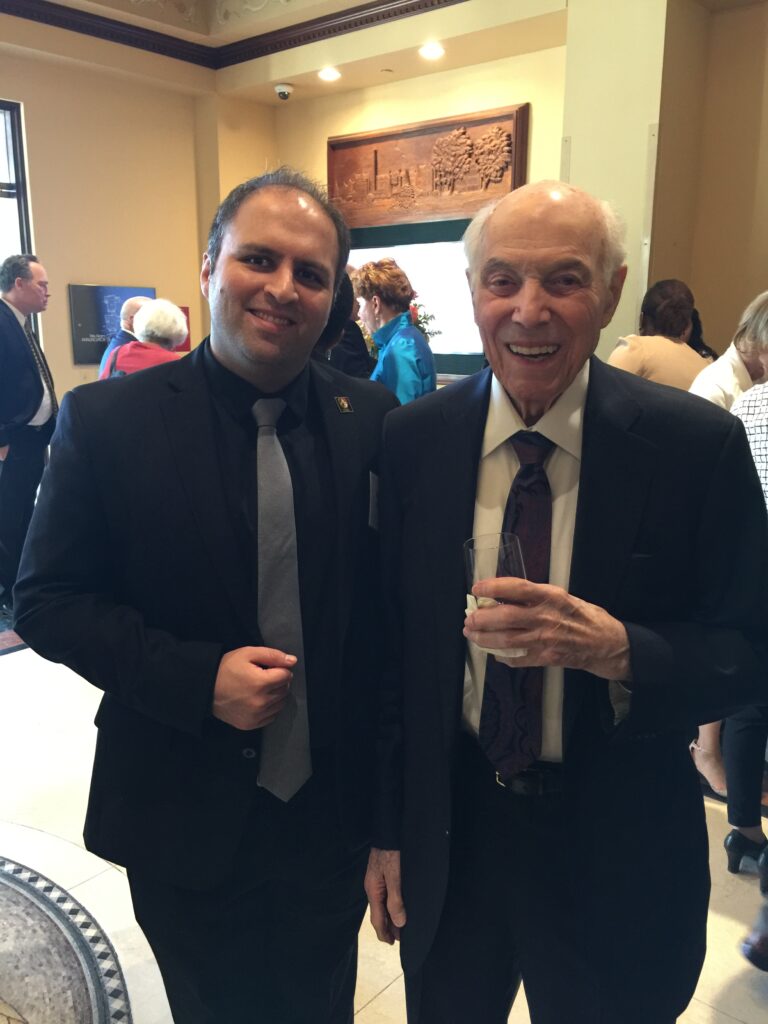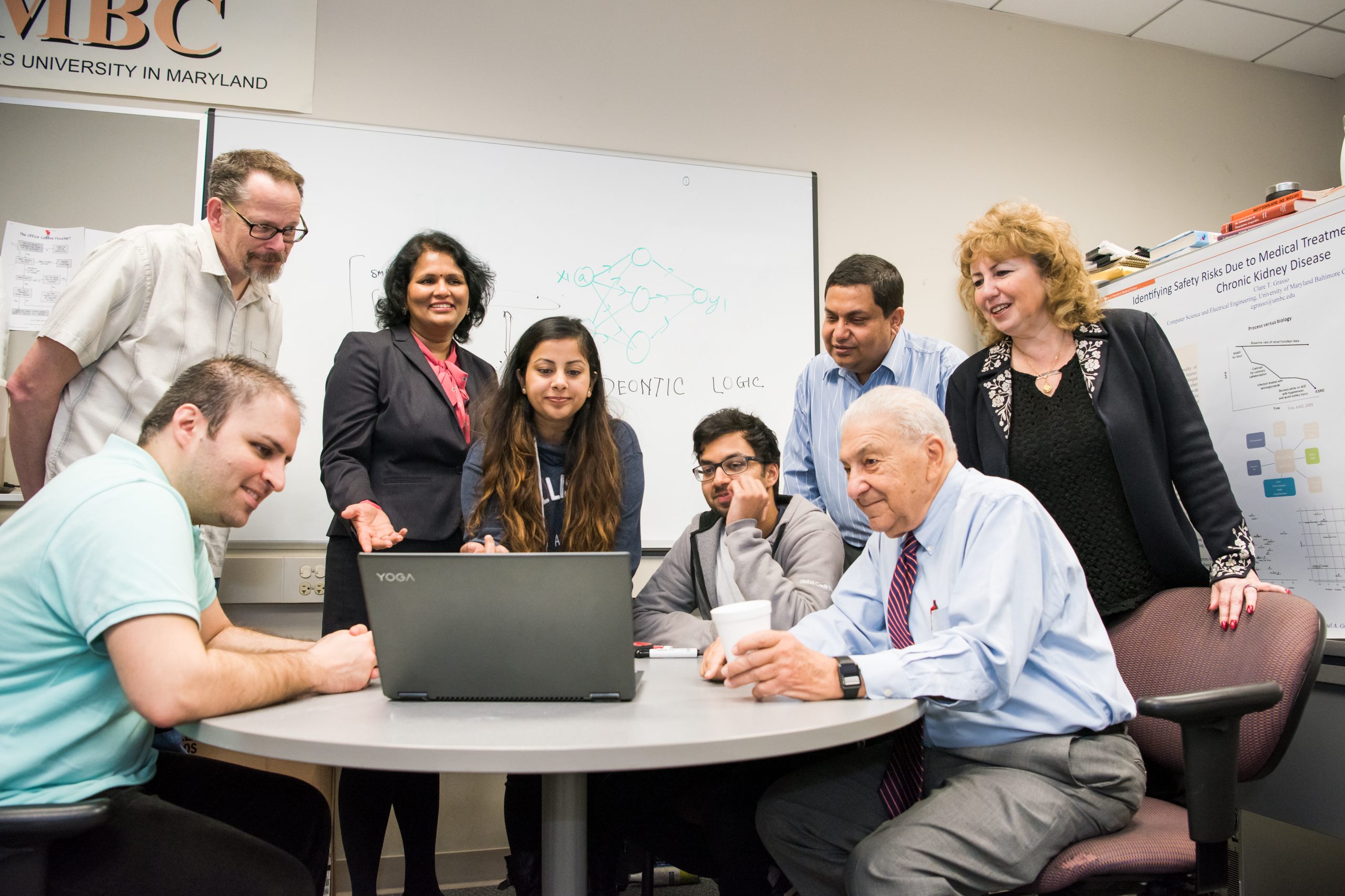Ramin Ayanzadeh, Ph.D. ’20, was awarded a spot in the selective Computing Innovation Fellows program, designed to help recent Ph.D. graduates continue research despite COVID-19.

When he began his Ph.D. studies in computer science in Iran, Ramin Ayanzadeh, Ph.D. ’20, computer science, never imagined that he’d travel more than 6,000 miles away from home to restart his doctoral program—losing his eyesight along the way—but never losing track of his ultimate goal to continue his research in quantum computing, which in Ayanzadeh’s words, helps solve problems that ordinary computers cannot solve.
Quantum computing has applications in cybersecurity, quantum chemistry, machine learning, weather forecasting, and in the development of pharmaceuticals as it supports exponentially faster problem-solving. Ayanzadeh notes that quantum computers do not replace current computers, but rather complete more complex or time-consuming tasks.
Ayanzadeh—who was recently awarded a position in the selective 2020 National Science Foundation Computing Innovation Fellows postdoc program—began his UMBC degree as quantum computing was becoming increasingly popular. Two UMBC faculty researchers who are leaders in AI and high-performance computing took the new doctoral student under their wing.
Tim Finin, professor of computer science and electrical engineering (CSEE), and Milton Halem, research professor of CSEE, encouraged Ayanzadeh to combine research in artificial intelligence (AI) with quantum computing. His Ph.D research and dissertation focused on using AI to advance quantum computing and teach computers how to solve problems that supercomputers are not able to complete.
Determined to adjust
When Ayanzadeh was diagnosed with retinitis pigmentosa, a genetic condition that causes eyesight to deteriorate overtime, he left Iran to live with an uncle in Maryland. He was determined to continue his studies, so he began researching programs that would allow him to continue his Ph.D. in cognitive science. After meeting with Finin and learning about his research, Ayanzadeh decided to completely change his dissertation topic from machine intelligence to AI and quantum computing, which meant that he would have to restart his PhD.
In fall 2013, Ayanzadeh was adjusting to new living arrangements and a new research topic, while facing a health challenge that required him to create adaptive tools and advocate for himself.
Ayanzadeh, who is now legally blind, says that his advisors and the CSEE department were supportive and helpful as he navigated the situation. He says that everyone wanted to help but they were not sure the best way to assist. As Ayanzadeh faced these challenges, he was very resourceful, says Finin, adding that he spent time finding solutions to meet his needs.
Building a support network
“He worked diligently to continue his graduate education and made steady progress,” says Finin. “Ayanzadeh has been very resourceful in acquiring assistive technologies that help and in building up a support network within the university community and beyond. His optimism, drive, and resourcefulness are inspirational, both to his fellow students and our faculty.”
During his final semester at UMBC, Ayanzadeh developed and instructed a seminar on programming quantum computers. Finin says that he was impressed by Ayanzadeh’s ability to spearhead the course, adding that he will be well-prepared for a career in academia.

“Academia is the place for me, even though industry is [better] equipped to accommodate me,” Ayanzadeh explains. “I always swim against the water.”
Nipun Ramagiri, M.S. ’22, computer science—one of the 23 students that Ayanzadeh taught—says that Ayanzadeh encouraged students to be engaged with the discussions and ask questions. Ayanzadeh was always willing to meet with students individually outside of class time, says Ramagiri, to answer additional questions or review material.
Ramgiri appreciated that Ayanzadeh took the extra step of inviting industry experts to talk to the class about how the course’s topics were connected to work being done by companies. “This made me get more involved in the open-source contributions being done in the field, which ended up getting me an internship at IBM Quantum,” says Ramagiri.
Computing Innovation Fellows program
As Ayanzadeh was finishing his Ph.D., the COVID-19 pandemic was impacting institutions across the country, and many companies and institutions were delaying hiring. Ayanzadeh knew that he wanted to pursue a career in academia, and with the ripple effects of the pandemic, he was not sure what his next steps would be. While he considered pursuing a career in industry, Ayanzadeh says that he decided that academia was a better fit because of the resources available to people with disabilities. He found out about the highly selective National Science Foundation’s Computing Innovation Fellows (CIFellows) program from Finin. About 550 people applied to the CIFellows program, and 59 were accepted into the 2020 class.

With less than two months until the CIFellow program application was due, Ayanzadeh still needed to find a mentor who was accepting post-docs in their lab. Eventually, his application to work with Moinuddin Qureshi, professor of computer science at Georgia Tech, was accepted by the CIFellows program—ensuring Ayanzadeh a position for the next few years.
During his postdoc, Ayanzadeh plans to improve the accuracy and precision of near-term quantum computers. He will apply artificial intelligence to mitigate errors and enhance the performance of noisy quantum computers.
The CIFellows program, which is funded by the Computing Research Association and the Computing Community Consortium, was created in response to the COVID-19 pandemic, to assist recent Ph.D. graduates facing unexpected challenges in securing research positions. Previously, the CIFellows program was open for applications between 2009 and 2011 when the economy was in a recession.
Like UMBC, most work at Georgia Tech is being conducted remotely, which impacts when Ayanzadeh will be able to begin conducting his research on campus. For now, he shares, he will be working remotely. When he is able to relocate to Georgia, Ayanzadeh says that he will likely face challenges navigating a new location, especially if he doesn’t have a strong support system like he has in Maryland. However, he says that he is eager to meet new people, and mentor undergraduate and graduate students when he is physically on campus.
Ayanzadeh received a Google Lime Scholarship in 2018, and participated in the Meyerhoff Graduate Fellows Program in 2019, which supported his research at UMBC for one year.
“The CIFellows program is an excellent opportunity for me to network with experts in computer science, who are leading the program, and rising leaders who will define the future of computer science,” says Ayanzadeh. “I also think that by participating I will be well-prepared for an academic position.”
*****
Header image: Ramin Ayanzadeh, seated left, in 2018 with other members of the Center for Accelerated Real Time Analytics (CARTA), a National Science Foundation-funded partnership to develop next-generation computing hardware to solve major infrastructure challenges. Photo by Marlayna Demond ’11.
Tags: COEIT, Computer science, CSEE

